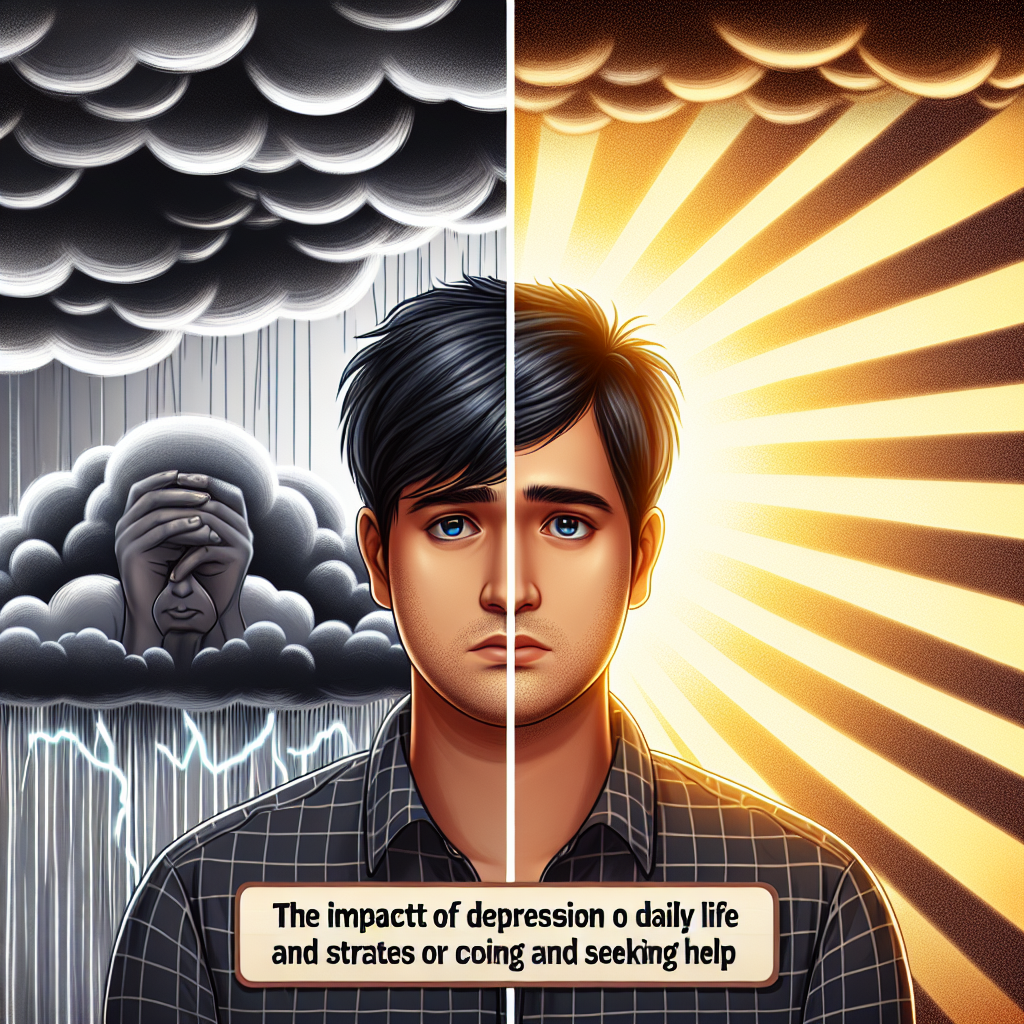Depression is a serious mental health condition that affects millions of people worldwide. It can have a profound impact on daily life, making it difficult to function and fulfill responsibilities. From work to relationships, depression can infiltrate every aspect of a person’s life, leaving them feeling hopeless and exhausted. However, there are strategies for coping with depression and seeking help that can make a significant difference.
The Impact of Depression on Daily Life
Depression can manifest in various ways, affecting a person’s thoughts, emotions, and behaviors. It can make simple tasks seem daunting and lead to feelings of sadness, apathy, and worthlessness. The following are some of the ways in which depression can impact daily life:
1. Work: Depression can make it difficult to concentrate, make decisions, and complete tasks at work. This can lead to decreased productivity, absenteeism, and even job loss.
2. Relationships: Depression can strain relationships with family, friends, and romantic partners. It can cause irritability, withdrawal, and a lack of interest in social activities, leading to feelings of isolation and loneliness.
3. Self-care: Depression can make it challenging to take care of oneself, leading to neglect of personal hygiene, nutrition, and exercise. This can exacerbate feelings of worthlessness and lead to physical health problems.
4. Sleep: Depression can disrupt sleep patterns, leading to insomnia or oversleeping. This can exacerbate feelings of fatigue, irritability, and lack of motivation.
5. Enjoyment: Depression can strip away the ability to experience pleasure and joy in activities that were once enjoyable. This can lead to a sense of emptiness and hopelessness.
Strategies for Coping with Depression
While depression can feel overwhelming, there are strategies that can help individuals cope and manage their symptoms. The following are some effective ways to cope with depression:
1. Therapy: Therapy, such as cognitive-behavioral therapy or interpersonal therapy, can help individuals identify and challenge negative thought patterns and develop healthy coping skills.
2. Medication: Antidepressant medications can help alleviate symptoms of depression by correcting chemical imbalances in the brain. It is important to consult with a healthcare provider to determine the most appropriate medication and dosage.
3. Exercise: Regular physical activity can improve mood, reduce stress, and boost self-esteem. Aim for at least 30 minutes of exercise most days of the week.
4. Nutrition: A balanced diet rich in fruits, vegetables, whole grains, and lean proteins can provide the nutrients necessary for mental health. Avoid excessive caffeine, sugar, and processed foods.
5. Sleep: Establish a consistent sleep schedule and create a relaxing bedtime routine. Avoid screens before bed and create a dark, quiet sleep environment.
6. Social support: Stay connected with friends and family members who are supportive and understanding. Join a support group or participate in social activities to combat feelings of isolation.
Seeking Help for Depression
If you or someone you know is struggling with depression, it is important to seek help from a qualified mental health professional. They can provide a comprehensive assessment and develop a personalized treatment plan that may include therapy, medication, lifestyle changes, and support services. Do not hesitate to reach out for help, as depression is a treatable condition and recovery is possible.
FAQs
Q: How do I know if I have depression?
A: Symptoms of depression can include persistent feelings of sadness, hopelessness, irritability, fatigue, changes in appetite or weight, difficulty concentrating, and thoughts of death or suicide. If you are experiencing these symptoms for more than two weeks, it is important to seek help from a healthcare provider.
Q: Can depression go away on its own?
A: While some individuals may experience a temporary bout of depression that resolves on its own, more severe cases of depression typically require professional intervention. It is important to seek help for persistent symptoms to prevent worsening of the condition.
Q: What should I do if a loved one is struggling with depression?
A: If a loved one is showing signs of depression, offer support, understanding, and encouragement to seek help. Encourage them to speak with a healthcare provider or mental health professional for an assessment and treatment options.
Q: Is it normal to feel ashamed or embarrassed about having depression?
A: It is common for individuals with depression to experience feelings of shame, guilt, or embarrassment. However, it is important to remember that depression is a medical condition that requires treatment, just like any other illness. There is no shame in seeking help for mental health concerns.
Q: How long does it take to recover from depression?
A: Recovery from depression is a gradual process and can vary from person to person. With appropriate treatment, support, and lifestyle changes, many individuals experience significant improvement in their symptoms within a few months. It is important to be patient and consistent in following treatment recommendations.




Leave A Comment